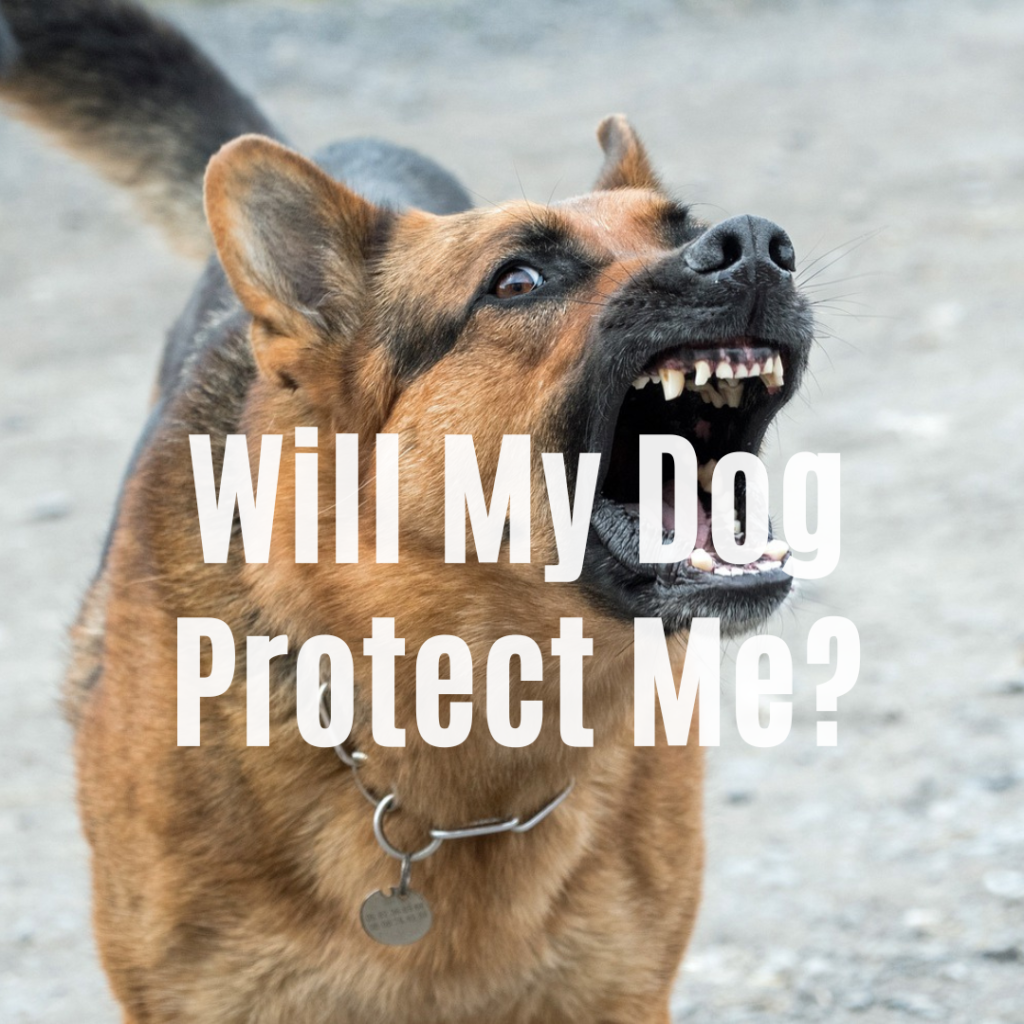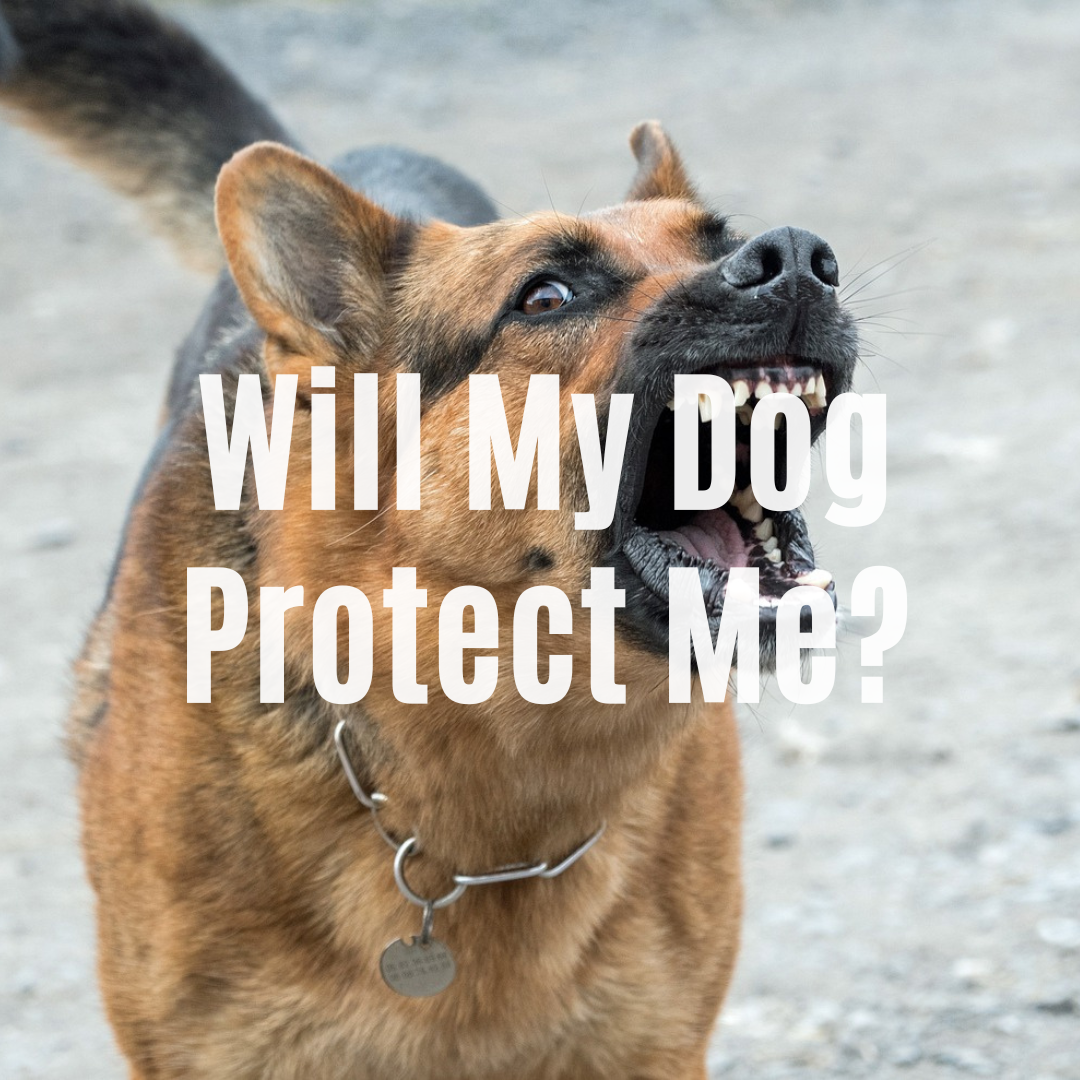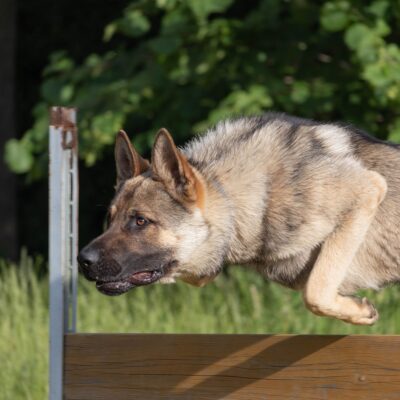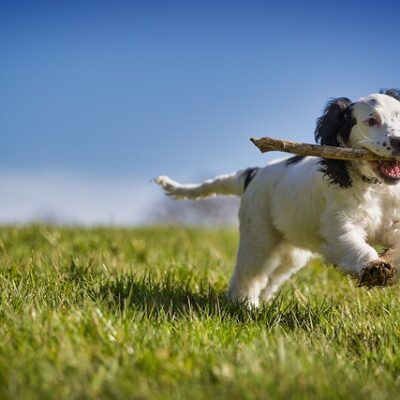
Will my dog protect me? Maybe, although it is unlikely with domestic dogs. The degree of their protection will depend on the following factors:
Breed – Some breeds are naturally more defensive of their owners than others.
Personality – Some dogs are more anxious or fearful and look to you to offer them protection instead.
Life Experience – If your dog has had a troubled past, it may be more or less protective of you.
Domestic dogs are not designed to protect civilians, and you should not buy a dog for protection (link) (link) (link) (link) (link) (link) (link) (link) (link).
Busy? Get Your Hands Paws On The Answers Quickly…
- Do Dogs Really Protect Their Owners?
- Can Dogs Be Too Protective?
- Which Dog Breeds Are The Most Likely To Protect Me?
- Will My Dog Automatically Protect Me?
- Should I Teach My Dog To Protect Me?
- Can Dogs Sense Intruders? What About Danger?
DO DOGS REALLY PROTECT THEIR OWNERS?
As you develop a close bond with your dog, you both become part of each other’s family.
Dogs have an instinct to protect their family or fellow members of the pack.
As you build trust with your dog, that instinct becomes stronger. This is why dogs have been known to protect the people they love.
For further reading about how dogs view you as part of their pack, check out our article Why Does My Dog Follow Me Into The Bathroom?
Here is how likely your dog is to protect you based on the situation:
At Home or Against Intruders
Maybe
Your dog could be even more protective of you while at home, and that is because the line between protectiveness and possessiveness is very thin. Your dog sees their home as their territory. That includes your house. That is why your dog may bark when another dog walks by or when the mailman delivers a package. They are warning you of any “intruders” and telling them that this is their home.
This possessive behavior will extend to you and your family if your dog fears an attack from an intruder. Your dog will be doubly protective of you because they also want to guard their home.
When Walking
Maybe
A study was done by Inside Edition (see the video below), which showed that some breeds that were bred to be protectors were more likely to protect their owners.
But for many dogs, they think that a stranger approaching you while walking wants to play.
Protecting Females
Maybe
Many dogs are closer to the women in their lives (more single women than single men have dogs, and in men/women marriages, the woman often takes primary care of the dog, and many animal care workers are women). Studies have found that due to this, dogs may be more protective of their female family members.
Dogs also tend to gravitate more towards women because they speak with softer voices and have calmer mannerisms. Since they are more drawn to women, they feel more protective.
Pregnancy
Maybe
If you are pregnant, you may wonder if your dog is more likely to be protective of you. The answer is tricky because it depends on the dog.
Different dogs will have different reactions to their owner’s pregnancies. Some dogs will become more protective during your pregnancy and may want to be by your side at all times.
Some owners even find that as their pregnancy progresses along, their dogs become more and more protective.
Children
Maybe
Dogs are generally more protective and tolerable of children, especially children in their family because even though kids are smaller, your dog sees you all as one big pack family.
So your dog will be just as protective of your children as they are of you.
CAN DOGS BE TOO PROTECTIVE?
Sometimes, dogs may become too protective of their owners. This can occur if you do not properly socialize your pup or if your dog becomes aggressive to anyone who crosses your path and the behavior is not corrected immediately. This is counterproductive, and dogs must be taught boundaries and are appropriately trained.
Dogs who have suffered abuse at the hands of a previous owner are also more likely to be overly protective of their new families because they want to show their appreciation for the good treatment and love they are getting with you.
WHICH DOG BREEDS ARE THE MOST LIKELY TO PROTECT ME?
German Shepherds – They might be the picture of a protective dog because they work closely with the police and protect them. German shepherds are very loyal and naturally protective of the people they love. They were originally bred to protect sheep. This naturally protective instinct can translate to protecting their owners.
Rottweilers – Rottweilers are naturally wary of strangers and people they have not met, but they are very attentive and loving to their family. This makes them excellent guard dogs. Rottweilers were one of the first dogs to serve in the military, and they would protect soldiers.
Doberman Pinschers – While these dogs are incredibly loving and gentle with their family, they can also be aggressive when they sense a threat. These dogs were initially bred to be the perfect mix of strength, loyalty, and intelligence.
Bullmastiffs – Bullmastiffs are known for their intense protection instincts and family loyalty. They are also powerful and will knock over or block an intruder if they need to. Bullmastiffs were bred in the 19 century to protect people’s estates and defend the land from poachers.
Giant Schnauzer – These dogs are highly intelligent and loving, but they are also fierce and will want to protect you and your family at all costs. They are also extremely loyal. This breed of dog was bred specifically to be guard dogs for their farmer-owners.
WILL MY DOG AUTOMATICALLY PROTECT ME?
While your dog will have protective feelings for you and your family, most dogs will not automatically act to protect you. Due to differences in breeds, some dogs will be naturally more protective than others. If you feel like your dog is not naturally as protective as you would like, there are some steps that you can take to train them.
SHOULD I TEACH MY DOG TO PROTECT ME?
No, it would be best if you did not teach your dog to protect you. This is because of a few reasons:
Dangerous – Training a dog to become a protector could be dangerous, and you should meet with officials to ensure that your dog’s behavior does not become dangerous.
Attacking – There is a difference between a protective dog and an attack dog. Attack dogs require special licensing, and they may not even be legal in your area. You want your dog to act a bit menacing towards strangers and bark to warn you and your family, but not to attack.
Experts agree that if you want to train your dog to protect you, it is crucial to get formal dog training. Then you will be able to predict their behavior in various situations.
How Do I Teach My Dog To Protect Me?
It is not recommended that you teach your dog to protect you, but you can teach your dog to alert you.
Before you teach your dog to alert you to any dangers, make sure that your dog knows basic commands, such as “sit,” “come,” and “down.” You should fully socialize your dog with other people and animals.
It is generally easier to teach young dogs to protect their humans, but that is not to say that older dogs cannot learn. Protecting is naturally instilled in your dog; you are just trying to enhance this instinct.
- The first thing you need to do if teaching your dog to protect you is to choose a panic word. A word like “panic” or “help” will be your dog’s cue to protect you.
- Some dogs bark whenever a stranger approaches, so it is a good idea to use that to your advantage. Have someone who is a stranger to your dog come up to your home and ring the bell or knock.
- Once your dog barks, give them the panic word that you chose. It is best to use this word with a cheerful and enthusiastic voice instead of a scared or angry voice.
- Let your dog bark for a few seconds before giving them a command to stop. This could be “hush,” “quiet,” “no more,” or whatever your command is for this behavior.
- As soon as your dog stops barking, give them a treat and a lot of praise.
- Keep practicing with strangers approaching your home and your dog barking and then stopping until they associate the panic word with the behavior. This could take a while, so be patient with your dog.
- Once your dog is doing well with the panic word, it is time to practice outside. Arrange a long walk for your dog and position people that your dog knows, as well as people that they do not know, along the path. Have the people that your dog knows give your pouch a treat and a pet. When you are approaching people that your dog does not know, say your panic word.
- When your dog barks, gently pull back on the leash, tell them to stop, and reward your dog. This will reinforce the different concepts of strangers and friends to your dog.
- Keep practicing. It will take a while, but before long, your dog will be able to warn you.
For any further protection, you should contact a qualified professional.
CAN DOGS SENSE INTRUDERS? WHAT ABOUT DANGER?
Yes, a dog’s senses are better than ours. Not only do dogs have a heightened sense of smell and sound, but they also are highly sensitive to pheromones, which allows them to predict danger. Dogs also pick up on subtle facial expressions and body language that give them a warning that someone might be dangerous.
Looking for more pawsome posts? Check these out…
Can Dogs Eat Lettuce?
How To Make A Snuffle Mat
When Do Puppies Lose Their Teeth?
Can Dogs Eat Broccoli?
Can Dogs Eat Watermelon?
Disclaimer: Each dog is different, and every circumstance is different. All efforts have been made to provide accurate information. However, it is not provided by a qualified Veterinarian, Veterinarian Surgeon, or Behaviorist. The information provided is purely educational. The information should not be used as an alternative or substitute for medical care. If you have any health or medical concerns, contact a qualified Veterinary Surgeon or Veterinarian immediately.











No Comment! Be the first one.